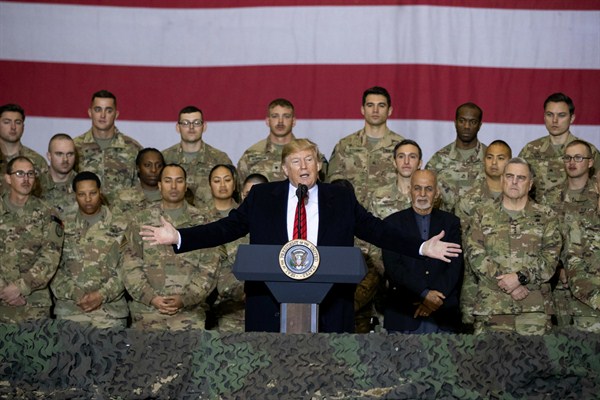When President Donald Trump granted pardons to two Army officers—one convicted of war crimes, the other accused of them—and reversed the demotion of a Navy SEAL who was convicted of posing with the corpse of an enemy combatant, he exposed several troubling ambiguities about civilian-military relations in the United States. Civilian and uniformed defense officials feel most at ease when the dynamics of their relationship are clear-cut, with formal and tacit assignments of roles and responsibilities that leave little room for uncertainty. In practice, though, things are rarely so black and white.
There is only one certainty so far in the drama unfolding over the pardons: that Trump, as commander-in-chief, can legally order the Navy to cease an administrative review and allow Eddie Gallagher to remain a Navy SEAL. The many other questions of civilian control raised by this incident are gray areas.
First among them is a procedural question: When the president of the United States tweets to the U.S. military, how should it respond? On its face, this seems simple. Trump’s tweets reflect his intent and rejecting them would be perilous, while ignoring the reality that presidential commands have come via all kinds of informal methods before that pose as much of a risk as tweets. At best, as Phil Carter has written, disregarding them is a subtle pause for clarification or dissent by military officials; at worst, it’s defiance.

